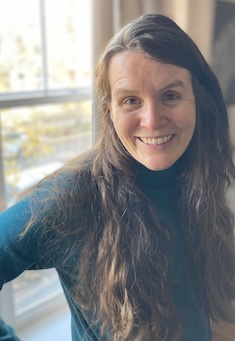Dr. Elizabeth Shermer on Fulbright

During the 2023-2024 academic year, Dr. Elizabeth Shermer has been on leave as the Fulbright Canada Distinguished Research Chair at Carleton University in Ottawa, Ontario, Canada. Shermer is at work on three projects and uses her time in Canada to gain an international perspective on the history of American education that she will apply to her upcoming courses.
Shermer’s first project is a monograph titled The Business of Education: Two Centuries of Competing for Donations, Research Grants, State Earmarks, and Student Fees. The Business of Education reveals that, in the absence of substantial financial support from the federal government, public and private universities in the United States turned to creative financing to fund their campuses. As a result, “these institutions that were supposed to be public goods,” Shermer says, “have actually not served the majority of American people. It’s really served a white Protestant elite.” Her project on creative financing and college campuses is closely related to her recent work on student loans, Indentured Students: How Government-Guaranteed Loans Left Generations Drowning in College Debt. Both explore the role of banking and finance in American education and their impact on generations of students, particularly women of color.
While finishing her manuscript, Shermer is also working on an edited collection titled Work, Capitalism, and Democracy in the 20th Century. The volume will explore major shifts in modern American life outside the traditional confines of labor, business, and political history. Lastly, Shermer is beginning a new project on pay stubs and the historic battles reflected in each deduction. In addition to a monograph, she anticipates bringing this history to life through a digital humanities project capable of comparing pay stubs from several countries.
Conducting research in Canada has given Dr. Shermer an opportunity to “get a more international perspective on American history,” as she can investigate the role of banking and finance in higher education within a broader North American context. She plans to apply her work in Canada to the classroom, such as in her upcoming Wealth and Poverty course, where her study of higher education and social welfare in North America will inform how she teaches the history of income inequality in the United States.
When she isn’t researching or editing, Dr. Shermer makes the most of her time in Canada by learning to ice skate and cross-country ski, rowing in the Ottawa River, and spending time with her cat Athena.
